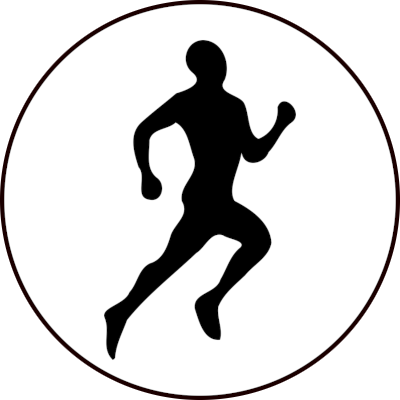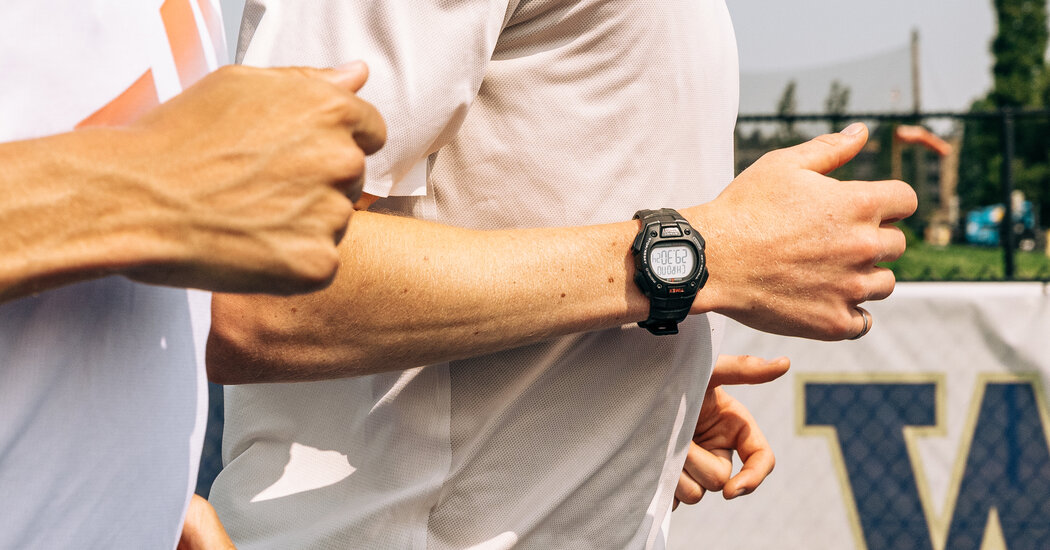"[Heather MacLean, an Olympic 1,500-meter runner] realized her watch was draining the fun from her runs. It was especially apparent to her during a low-key stretch when she was simply trying to build fitness.
I hated that every run I went on, I felt like I had to check my pace and my distance and whatever else,” she said. “So I just decided that I was going to lay off it for a while and switch to a regular watch.”
She never went back. MacLean, 28, who now wears an Armitron Dragonfly that she said she picked up for $10 at Walmart, acknowledged that there were certain workouts when a GPS watch would come in handy, like when she did a tempo run by herself. (Tempo runs are faster than easy jogs, and frequently run at a prescribed pace.) But Mark Coogan, her coach, has long prioritized effort over pace, and MacLean logs her training in minutes rather than in miles.
“I know I’m at the elite level now, so not everything is going to be joyful,” MacLean said. “But when there are things that bring me a lot of joy, I’m going to invest in them. And one of those things is the ability to avoid focusing on my pace during my runs.”
Without the pressure of feeling as if she needs to account for every mile — or, perish the thought, post her workouts for public inspection on Strava, the exercise-tracking platform — MacLean has also gotten better about listening to her body. She has no qualms about bailing on an extra workout if she is feeling beat.
“And I’ll tell Mark that I’m going for a walk instead,” MacLean said. “And he’s like, ‘OK!’”



So, I used TrainAsOne, which builds a dynamic plan that adjusts to your fitness levels etc.
And when it generates a workout, it exports that to my Garmin. So then when I run, the Garmin has a pace range, and it shows my average pace for that leg, updated in real time, in a nice little interface. Green when I’m within the pace band, red when I’m not.
Also, given that it only cares about your average pace for the leg, it also takes in to account your previous runs and assumes you will run something similar in terms of gradient. It also adjusts for expected heat levels etc.
It will be wrong if you move to a location with a radically different gradient profile, but even then, once you’ve run it, it will take in to account the actual gradient and your pace, so you don’t get punished for running slower on gradients
Oh that’s very interesting to hear. I’ve just signed up for TAO yesterday and I’m excited to try it out.
I must say from what I’ve seen of it so far, it has some weird deficiencies, like the inability to tell it I want my Sunday run to be the longest one—or even that I definitely want a Sunday run at all. Guess I’ve just gotta learn to trust the AI’s wisdom? Seems to sorta go against the idea that it’s about flexibly reacting to your life.
Out of interest, do you have any particular fields it’s helpful to display when running a TAO workout?